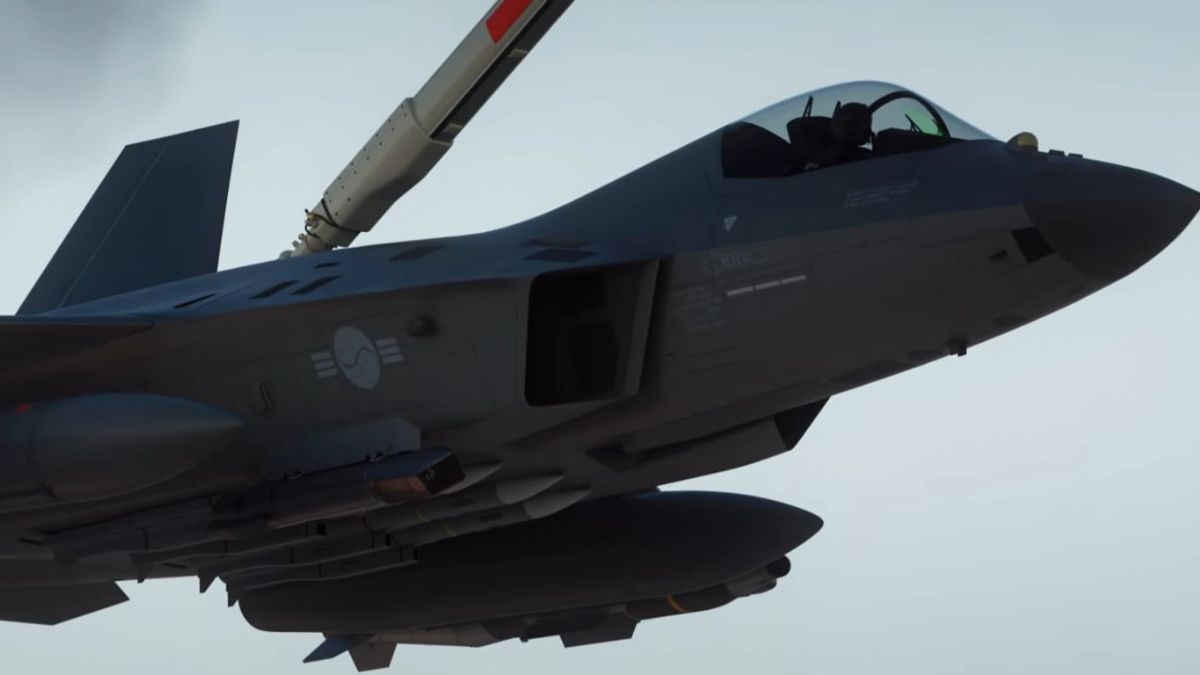The chief executive officer of PT Dirgantara Indonesia, Gita Amperiawan, arrived in South Korea on March 28 for a two-day visit amidst an ongoing investigation into alleged data theft related to the joint KF-21 fighter jet development project.
Officials at the Defense Acquisition Program Administration (DAPA) and Korea Aerospace Industries Ltd. (KAI) confirmed the visit of the Indonesian official.
PT Dirgantara Indonesia (PTDI), a key player in Indonesia’s aerospace industry, has been actively involved in the joint development of the KF-21 fighter jet, with Indonesian engineers working alongside counterparts at KAI.
The KF-21 project, initiated in 2015, aims to develop an advanced supersonic fighter by 2026. While the purpose of Amperiawan’s visit was not explicitly disclosed, officials from DAPA and KAI indicated that discussions centered around the progress and future cooperation of the joint development project.
Specific details regarding the nature of these discussions were not provided. The visit comes in the wake of reports that an employee of PTDI allegedly attempted to steal data about the KF-21 program from KAI’s headquarters in Sacheon, South Korea, in January this year.
The incident has sparked a police investigation into the matter. The ongoing probe raises questions about the implications of the alleged data theft incident on the joint development project and the broader collaboration between Indonesia and South Korea in the aerospace sector.
The investigation centers on whether the stolen data included sensitive technologies linked to the KF-21 development program. Following the incident that came to light last month, Indonesian individuals are currently prohibited from leaving South Korea.

In February 2024, South Korean legislators urged the government to implement stricter laws to prevent the leakage of defense secrets.
Hong Suk-joon, a lawmaker from the ruling People Power Party, emphasized the necessity for laws safeguarding military expertise to require evidence of an “intent to be utilized in a foreign country” for leaks to be prosecutable.
He called upon his fellow legislators to help close these loopholes by passing relevant bills that have been pending before the National Assembly since 2020.
Concerns Over Delayed Payments
Indonesia’s commitment to the KF-21 project has faced scrutiny over the years due to delays in its financial contributions.
Despite agreeing to cover approximately 20 percent of the project’s total cost, estimated at 8.1 trillion won (US$6 billion) through 2026, Indonesia has struggled to fulfill its financial obligations on time.
In 2021, 114 Indonesian engineers working on the project left South Korea because Indonesia had failed to pay them. However, 32 of these engineers eventually rejoined the program.
Recently, DAPA reportedly issued a new warning after Indonesia requested an eight-year extension past the 2026 payment deadline. The Southeast Asian nation currently owes 1 trillion rupiahs ($746 million) to Seoul.
Amidst discussions of delayed payments, South Korea and Indonesia regularly reaffirm their commitment to the program, with recent announcements shedding light on the project’s progress and prospects.
South Korea recently approved plans to produce 20 KF-21 Boramae fighters this year, half of the 40 initially planned. This demonstrates South Korea’s determination to push forward with the project despite challenges.
The KF-21 fighter jet made its public debut in 2023 at a Seoul defense exhibition, captivating audiences with its demonstration flight.
With the South Korean Air Force aiming to deploy 120 units of the KF-21 by 2032, the aircraft is poised to replace the country’s aging fleet of F-4 and F-5 fighters, as well as fourth-generation F-16s and F-15Ks.
One of the key selling points of the KF-21 is its cost-effectiveness compared to other warplanes in the market. Priced between US$80 million and US$100 million per unit, the KF-21 offers advanced capabilities at a competitive price point.
South Korea, aspiring to become the world’s fourth-largest arms exporter, sees potential markets in Asia and the Middle East where the KF-21 could serve as a viable alternative to Chinese warplanes.
While not technically classified as a stealth aircraft, the KF-21 incorporates stealth-like features, making it a formidable contender in modern aerial warfare.
Developed as a fourth-generation-plus warplane, the KF-21 combines elements of fifth-generation technology with a fourth-generation platform, contributing to its cost-effectiveness.
Collaboration with Lockheed Martin, renowned for producing the F-22A Raptor and F-35 Lightning II, has further bolstered the KF-21’s design and capabilities.
- Contact the author at ashishmichel(at)gmail.com
- Follow EurAsian Times on Google News